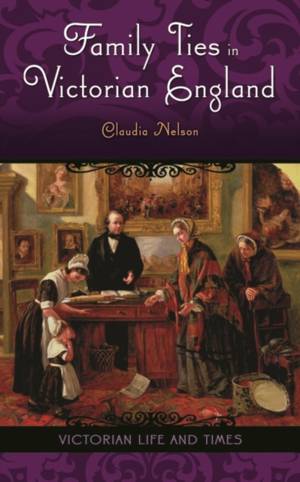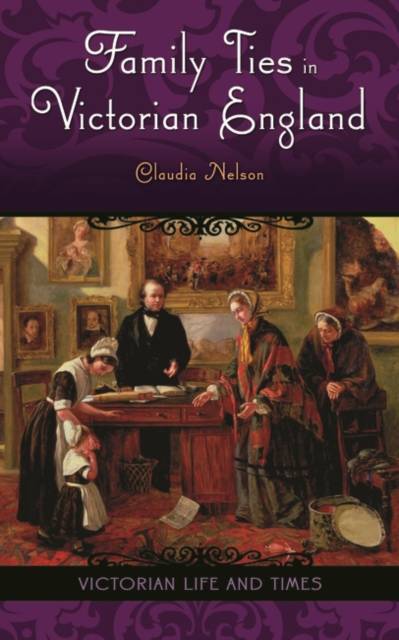
En raison d'une grêve chez bpost, votre commande pourrait être retardée. Vous avez besoin d’un livre rapidement ? Nos magasins vous accueillent à bras ouverts !
- Retrait gratuit dans votre magasin Club
- 7.000.000 titres dans notre catalogue
- Payer en toute sécurité
- Toujours un magasin près de chez vous
En raison de la grêve chez bpost, votre commande pourrait être retardée. Vous avez besoin d’un livre rapidement ? Nos magasins vous accueillent à bras ouverts !
- Retrait gratuit dans votre magasin Club
- 7.000.0000 titres dans notre catalogue
- Payer en toute sécurité
- Toujours un magasin près de chez vous
93,45 €
+ 186 points
Description
The Victorians were passionate about family. While Queen Victoria's supporters argued that her intense commitment to her private life made her the more fit to mother her people, her critics charged that it distracted her from her public responsibilities. Here, Nelson focuses particularly on the conflicting and powerful images of family life that Victorians produced in their fiction and nonfiction--that is, on how the Victorians themselves conceived of family, which continues both to influence and to help explain visions of family today.
Drawing upon a wide variety of 19th-century fiction and nonfiction, Nelson examines the English Victorian family both as it was imagined and as it was experienced. For many Victorians, family was exalted to the status of secular religion, endowed with the power of fighting the contamination of unchecked commercialism or sexuality and holding out the promise of reforming humankind. Although in practice this ideal might have proven unattainable, the many detailed 19th-century descriptions of the outlook and behavior appropriate to fathers and mothers, sons and daughters, and other family members illustrate the extent of the pressure felt by members of this society to try to live up to the expectations of their culture. Defining family to include the extended family, the foster or adoptive family, and the stepfamily, Nelson considers different roles within the Victorian household in order to gauge the ambivalence and the social anxieties surrounding them--many of which continue to influence our notions of family today.Spécifications
Parties prenantes
- Auteur(s) :
- Editeur:
Contenu
- Nombre de pages :
- 216
- Langue:
- Anglais
- Collection :
Caractéristiques
- EAN:
- 9780275986971
- Date de parution :
- 28-02-07
- Format:
- Livre relié
- Format numérique:
- Ongenaaid / garenloos gebonden
- Dimensions :
- 165 mm x 241 mm
- Poids :
- 489 g

Les avis
Nous publions uniquement les avis qui respectent les conditions requises. Consultez nos conditions pour les avis.






